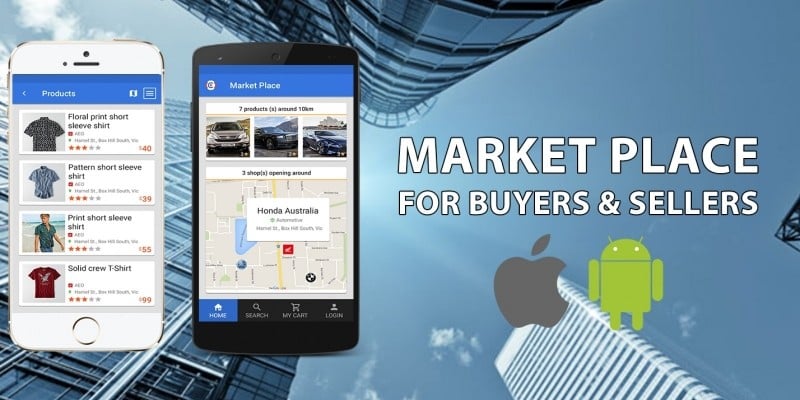In the fast-paced digital world we live in, car buying and selling have gone beyond traditional dealerships and classified ads. Today, millions of people turn to online platforms for more convenience, transparency, and accessibility. Among these platforms, Facebook Marketplace stands out as one of the most powerful and user-friendly tools for car enthusiasts, buyers, and sellers.
If you’ve ever wondered how to use Facebook Marketplace Cars to buy or sell vehicles efficiently, this comprehensive guide will help you rev up your car trading experience and make the most out of this global marketplace.

What is Facebook Marketplace Cars?
Facebook Marketplace Cars is a dedicated section of Facebook’s online marketplace that allows users to buy, sell, and trade vehicles locally or even across regions. Initially launched as a place for users to buy and sell everyday items like furniture or electronics, Facebook expanded the Marketplace feature to include categories like Vehicles, Real Estate, and Services.
In the Vehicles category, users can find listings for cars, trucks, motorcycles, SUVs, boats, RVs, and even parts or accessories. What makes Facebook Marketplace Cars stand out is its integration with social networking—buyers can view seller profiles, see mutual friends, and even communicate through Messenger in real time.
Why Use Facebook Marketplace Cars?
Facebook Marketplace Cars has quickly become one of the most trusted platforms for car buyers and sellers. Let’s explore why:
1. Wide Reach
Facebook has over 3 billion active users, which means sellers have access to a massive audience. Whether you’re selling a compact sedan or a luxury SUV, chances are you’ll find interested buyers quickly.
2. No Listing Fees
Unlike many car-selling websites that charge posting or transaction fees, Facebook Marketplace is free. Both private sellers and dealerships can post their vehicles at no cost.
3. User Verification
Because profiles are linked to Facebook accounts, it’s easier to verify sellers and buyers. You can view their public profiles, mutual friends, and how long they’ve been on Facebook—reducing scams and building trust.
4. Built-In Messaging System
The Facebook Messenger integration allows instant communication between buyers and sellers. You can negotiate prices, ask questions, or arrange meetups directly in chat.

5. Local Convenience
Facebook Marketplace automatically shows listings “near you”, allowing you to find cars available in your city or neighborhood. This makes it easier to arrange test drives and vehicle inspections.
How to Find Cars on Facebook Marketplace
Finding your dream car on Facebook Marketplace is easy. Here’s a step-by-step breakdown for desktop, Android, and iOS users:
1. On Desktop
-
Log in to your Facebook account.
-
Click the “Marketplace” icon on the left side of the homepage.
-
Select “Vehicles” from the categories.
-
Use filters such as Make, Model, Year, Mileage, Price Range, and Location to narrow down your search.
-
Click on a car listing to view photos, details, and the seller’s information.
2. On Android
-
Open the Facebook app.
-
Tap the Marketplace icon (a little shop symbol).
-
Tap “Vehicles” or search directly for a car brand or model.
-
Adjust filters for your budget and preferred distance.
-
Message the seller through Messenger when you find something you like.
3. On iOS (iPhone/iPad)
-
Launch the Facebook app.
-
Tap the Marketplace icon at the bottom of your screen.
-
Choose Vehicles or enter the car’s name in the search bar.
-
Filter results based on location, price, and car condition.
-
Click on a listing to contact the seller.
How to Sell a Car on Facebook Marketplace
Selling your car on Facebook Marketplace is quick, free, and simple. Here’s how you can do it effectively:
Step 1: Go to Facebook Marketplace
Log into your Facebook account and click or tap the Marketplace icon.
Step 2: Create a Listing
Click “Create New Listing”, then select “Vehicle for Sale”.

Step 3: Upload Clear Photos
Upload high-quality pictures of your car from multiple angles—front, side, back, interior, and engine bay.
Make sure your photos are taken in daylight and the car is clean.
Step 4: Add Details
Include:
-
Make and Model (e.g., Toyota Camry 2018)
-
Mileage
-
Transmission Type
-
Condition (New, Used, or Certified Pre-Owned)
-
VIN (Vehicle Identification Number)
-
Asking Price
-
Location
Step 5: Add a Description
Write a detailed and honest description highlighting key features like:
-
Engine size
-
Fuel efficiency
-
Maintenance history
-
Recent upgrades or repairs
-
Reason for selling
Step 6: Publish
Once you review your listing, click Publish. Your car will appear instantly on Marketplace and be visible to nearby buyers.
Tips for Buying Cars on Facebook Marketplace
Buying a car online can be risky if you’re not cautious. To ensure a smooth and safe transaction, follow these best practices:
1. Research the Car
Before contacting the seller, check the car’s market value on sites like Kelley Blue Book or Edmunds. This will help you avoid overpaying.
2. Verify the Seller
Look at the seller’s profile. If it’s new or lacks a profile photo, proceed carefully. Prefer local sellers with established profiles.
3. Ask for Vehicle History
Request the VIN to check the car’s history on Carfax or AutoCheck. You can see if it’s been in accidents, had multiple owners, or was ever declared a total loss.
4. Inspect the Car
Never buy a car without inspecting it physically. Bring a trusted mechanic to assess its condition.
5. Test Drive
Arrange a safe, public location to test drive the car. Observe how the engine sounds, check the brakes, and test all electronics.
6. Negotiate
Facebook Marketplace allows direct negotiation through Messenger. Don’t hesitate to make a fair counteroffer.
7. Secure Payment
Avoid wire transfers or checks. Opt for cash payments or escrow services if necessary. Complete the transaction in person, and ensure proper title transfer.
Tips for Selling Cars on Facebook Marketplace
If you’re a seller, standing out among hundreds of listings can be tough. Use these strategies to attract serious buyers:
1. Take High-Quality Photos
Clean your car inside and out before photographing. Use good lighting and clear backgrounds.
2. Write a Compelling Description
Your description should answer all potential buyer questions. Include:
-
Condition of tires and brakes
-
Maintenance records
-
Accident history (if any)
-
Additional accessories (like Bluetooth, reverse camera, alloy wheels)
3. Set a Realistic Price
Research your car’s value using NADA Guides or Kelley Blue Book. Set a competitive price to attract more buyers.
4. Respond Quickly
Fast responses increase buyer trust. Check your Messenger frequently and reply promptly.
5. Be Honest
Transparency builds credibility. Mention any faults or repairs needed to avoid future disputes.
6. Meet Safely
Always meet buyers in public, well-lit locations, such as police department parking lots or shopping centers.
Facebook Marketplace vs. Other Car Selling Platforms
| Feature | Facebook Marketplace | Craigslist | Autotrader | CarGurus |
|---|---|---|---|---|
| Listing Fee | Free | Paid in most areas | Paid | Paid |
| Audience Reach | Global (3B+ users) | Local | National | National |
| Ease of Use | Very Easy | Moderate | Advanced | Advanced |
| Verification | Linked Profiles | Anonymous | Verified Dealers | Verified Dealers |
| Messaging System | Built-in (Messenger) | Email/Phone | Platform Messaging | Platform Messaging |
Verdict: Facebook Marketplace provides maximum visibility at zero cost, making it ideal for both casual sellers and dealerships.
Using Facebook Marketplace Cars as a Dealership
Dealerships can also benefit immensely from Facebook Marketplace. Through Facebook’s partnership with automotive inventory partners, dealerships can:
-
Sync their vehicle listings directly to Facebook Marketplace.
-
Use Facebook Ads to promote specific cars.
-
Engage potential buyers through Facebook Messenger automation.
This integration helps car dealers reach more potential buyers with minimal effort.
Common Scams and How to Avoid Them
While Facebook Marketplace is generally safe, scams do exist. Here are red flags and prevention tips:
Too Good to Be True Prices
If a car is priced far below market value, it might be a scam.
Requests for Advance Payment
Never send deposits or payments before seeing the car.
Fake Profiles
Check the seller’s profile creation date and activity. Avoid users with no friends or photos.
VIN Concealment
A legitimate seller will always provide the VIN when asked.
Third-Party Escrow Scams
Avoid “fake escrow” links or third-party payment platforms that the seller recommends.
Pro Tip: Always communicate within Messenger and report suspicious listings to Facebook.
Advantages of Buying and Selling Cars Locally
-
Easier Inspections: You can inspect and test-drive before buying.
-
Instant Transactions: Local sales mean faster payments and handovers.
-
Reduced Transport Costs: No shipping or delivery fees.
-
Community Trust: You’re dealing with nearby individuals, often with mutual friends.
Optimizing Your Car Listings for More Views
If you want your car listing to appear more often in Marketplace searches, follow these optimization tips:
1. Use Specific Titles
Instead of “Car for Sale,” write “2019 Toyota Corolla LE – Excellent Condition.”
2. Add Keywords
Use keywords like “used cars near me,” “SUV for sale,” “fuel-efficient car,” etc.
3. Update Frequently
If your car doesn’t sell quickly, update your post every few days to boost visibility.
4. Join Local Car Groups
Share your Marketplace listing in Facebook groups dedicated to car sales in your area.
The Future of Car Buying and Selling on Facebook
Facebook is continuously improving its Marketplace to make car trading more seamless. Upcoming innovations include:
-
AI-powered price suggestions
-
Augmented reality (AR) car previews
-
Integration with Meta Pay for safer transactions
-
Enhanced dealer analytics and insights
As Meta (Facebook’s parent company) pushes toward a more connected, digital ecosystem, the automotive sector on Facebook Marketplace will only grow more powerful and reliable.
Final Thoughts
Facebook Marketplace Cars has revolutionized the way people buy and sell vehicles. It provides a global yet local platform, ensuring transparency, convenience, and affordability. Whether you’re an individual looking to sell your old car or a buyer searching for your next ride, Facebook Marketplace gives you the tools to make it happen—right from your phone or computer.
By following best practices—verifying sellers, writing detailed listings, and staying safe—you can turn Facebook Marketplace into your go-to platform for all things automotive.
So, the next time you’re thinking about upgrading your ride, don’t just visit a dealership—log in to Facebook Marketplace Cars and rev up your car buying and selling experience!
